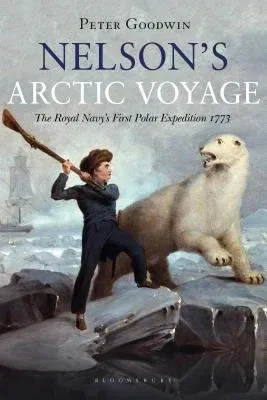A detailed account of the Royal Navy's near fatal expedition into the
polar regions in 1773--with the young Horatio Nelson on board.
In the summer of 1773 the 14-year old Horatio Nelson took part in an
expedition to the Arctic, which came close to ending his naval career
before it had begun. Two bomb vessels, HMS Racehorse and Carcass,
were fitted out and strengthened under the command of Captain Hon.
Constantine Phipps for an expedition to find the Northwest Passage. It
was an extremely cold Arctic summer and the ships became locked in ice
unable to cut their way out for days until the wind changed and the ice
broke up. The ships were eventually extricated and sailed home, and the
legend of Horatio Nelson began.
During the voyage, the young Nelson had command of one of the smaller
boats of the ships, a four-oared cutter manned by twelve seamen. In this
he helped save the crew of one of the Racehorse's boats from an attack
by a herd of enraged walruses. He also had a more famous encounter with
a polar bear while attempting to obtain a bearskin as a present for his
father, an exploit that later became part of the Nelson legend.
Drawing on the ship's journals, and expedition commander Phipps' log
from the National Archives, Nelson's Arctic Voyage creates a
fascinating picture of the expedition and life on board. Using the
ships' muster books it also details the ship's crews, explaining the
different roles and ranks aboard. Nelson's Arctic Voyage is
illustrated using the ship's drawings, charts, as well as objects used
aboard, accompanied by a navigational chart of the route taken.
Nelson's Arctic Voyage also examines the concept of naval exploration
as put forth by Joseph Banks and the Royal Society. The near failure of
the expedition as a result of poor planning--with potentially tragic
results--demonstrates the difficulties and uncertainties of such
expeditions. Nelson's Arctic Voyage also provides a unique glimpse at
a great naval commander at the earliest stage of his career, analyzing
how the experience might have shaped his later career and attitudes.
Other great captains and voyages are discussed alongside Nelson,
including Captain Cook and his exploration of the south seas and the
later ill-fated northern journeys of Franklin and Shackleton.

